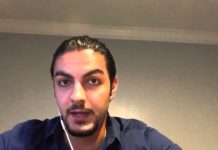Charles Duhigg, the author of the best selling book, The Power of Habit, has spent his professional life thinking about why some people are better at getting more done in the same amount of time than others. His latest thinking on productivity is now available to us in the newly released Smarter, Faster, Better.
Duhigg believes that productivity is doing work that someone defines as being meaningful or important or helpful to them. The obvious first step here is figuring out what that means…what your goals are. Easier said than done but once you do know what your goals are, being productive is working to get closer to those goals every day without feeling as though you’e wasting your time and effort in getting there.

Getting closer to those goals, being productive, is different today than it was yesterday or during the Industrial Revolution or even before that. Earlier, when we were an agrarian society and we worked as farmers, we defined our productivity by the number of hours we worked. When we were able to hire other workers to work more hours on our land, we defined ourselves as being more productive. Time or hours became “smarts” or machines when the Industrial Revolution rolled around. Machines and assembly lines did the work faster and we were more productive. Now, we’re in the midst of the Technology Revolution and our productivity is smarter, faster, better but we are all, all of us, always overwhelmed.
Duhigg thinks that our current states of heightened productivity and of always feeling overwhelmed come from the almost infinite ways we can be distracted…the infinite ways we can be “busy.” Just look at the “tools” and devices we have at our disposal…phones, tablets, computers, bots, nonstop cycles of information, news, media. We know we can and ought to be more productive by getting closer to our goals every day but we get sidetracked and distracted by the tools and devices we take for granted.
So how do more productive people become less distracted and sidetracked? Duhigg suggests that we develop mental habits, habits that psychologists call “cognitive mental routines,” that help us control our anxiety by pushing us to think more carefully and more deeply about the choices we make. He also suggests that to think “better,” we need to expose ourselves to alternate ways of thinking, to more ideas, to more “what ifs” on a regular basis.
Duhiff’s ultimate and literal secret to becoming more productive is “…someone saying, ‘Oh, I never thought about it that way.'”
Can technology help us do this? Yes, Duhigg says. “Status reports for and from everyone… time tracking apps that guide and make us accountable for our time…clearly written, effective goals…closing all those browser tabs…” are the ways we can think and be more productive in this distracted world.































